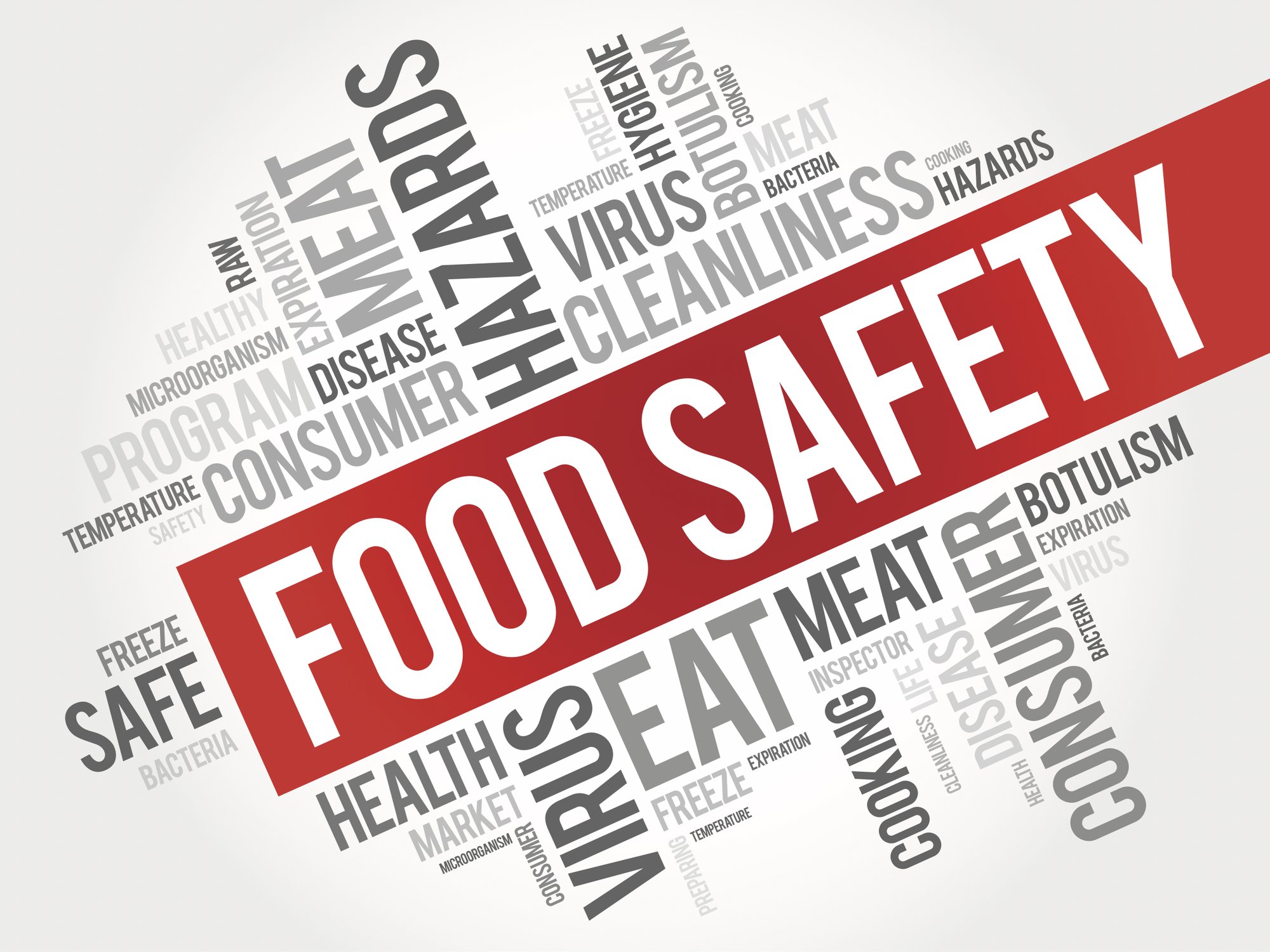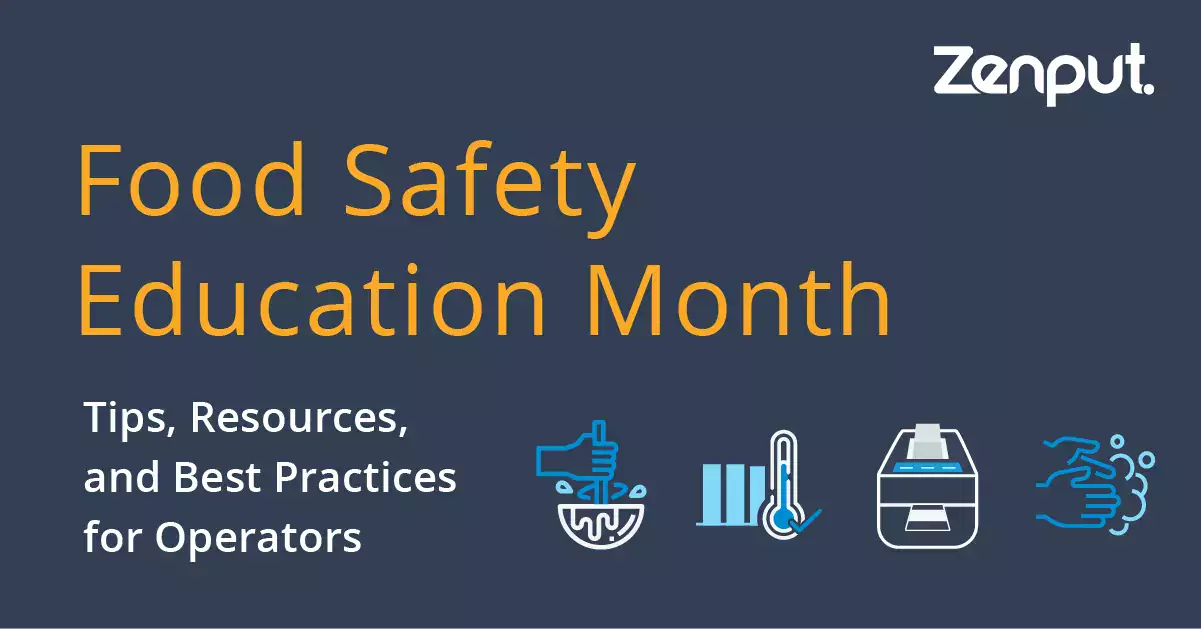Regardless of where or how a food safety issue originates, your employees are the last line of defense for the wellbeing of customers. This places enormous responsibility on operators to ensure that—from farm to fork—every team member is adequately trained to follow food safety protocols, uphold quality control standards, and comply with regulations.
With around 1 in 6 Americans sickened annually due to foodborne illnesses and the economic impact caused by foodborne pathogens at $15.5 billion annually, inadequate food safety practices can have a significant impact on the viability and growth of food-related businesses. Your brand could suffer irreparable harm, and your business could incur hefty legal bills as a result of illness induced by poor food safety practices.

The CDC and FDA routinely cite five factors—food from unsafe sources, inadequate cooking, improper holding temperatures, contaminated equipment, and poor personal hygiene—as leading causes of foodborne illness outbreaks in retail and foodservice establishments.
One way to demonstrate commitment to a safe food supply is to include food safety in your core value statement. If it’s not part of your mission statement, then it’s probably not a top priority. Cindy Jiang—director of global food safety & supply chain compliance for McDonald’s—notes that “consumers expect safety in every meal they buy,” and proper workplace training and education are instrumental in ensuring these expectations are met.
Industry experts agree that operators should leverage training from reputable providers to help food handlers grasp proper safety procedures and achieve measurable goals. Then management teams must monitor personnel consistently in order to ensure continued compliance with safety protocols.
Food safety should be a core part of any foodservice operation’s daily grind. Harnessing the immense power of tech tools can streamline the training process and help employees tick every box of your organization’s safety checklist without compromising standards.

Core Principles of Employee Food Safety Training
Meticulously following every critical step when training staff will set teams up for success in terms of food safety and professional growth. Full adherence to the core training principles will prioritize safe food handling as well as enhance long-term employee relations that can positively impact employee retention rates.
Core Principle 1: Prioritize Safety
In the onboarding process, food and occupational safety should be a priority. When it comes to food handling, storage, and proper use of equipment, it is important for employees to understand the ‘why’ behind their tasks. When they understand how public health and food safety are tied to every task and the implications that mismanagement can have, they will be inclined to show more diligence when applying food safety principles.
Training should be offered regularly to refresh and update current staff and not be limited only to new hires. Keeping all employees constantly aware of their food safety responsibilities and holding refresher sessions will keep food safety at the forefront of daily functions. Quality assurance officials may be a brand’s food safety face, but it’s vital to emphasize to employees that making sure food safety standards are upheld is a shared responsibility.
Hand washing, proper holding temperatures, and sanitizing equipment and utensils—the basics of food safety—have not changed. Cross-contamination can be eliminated by including clear directives on sanitization equipment, appropriate storage temperatures, holding times, and food handling. The key is keeping the message fresh so that employees always keep it top of mind.
Food safety training sessions must be scheduled for all employees that handle food in any way. From service and prep line workers, to warehouse or sanitation employees, all the way up to managers and supervisors: food safety training should extend to all employees in the food handling unit. After training has taken place, application at the workplace and consistent reinforcement will set the standard for employee behavior. Food safety practices should become habitual and non-negotiable.
Core Principle 2: Identify Top Performers
By identifying top performers on the team, operators can draw them in to train newcomers and those less experienced or even those with low motivation levels. This way, businesses can scale their internal training resources.
Giving top performers a little more responsibility demonstrates that they are valued, their work is noticed, and that they are growing within the brand. You could also, of course, offer incentives, such as gifts, money, and year-end bonuses to drive outstanding performance.
Core Principle 3: Employee Retention
With an employee turnover rate of 150% in the fast-food industry, investing in employees through training is crucial for retaining your team for long-term growth, reducing costs, and improving customer service. The training must be structured in a manner that makes employees feel that the undertaking is not just about checking boxes, but that it is an investment in that employee's future and that their growth is tied up with that of the brand.
If employees understand how their actions impact customers and the role they play in the success of the entire operation, they will be heartened that the business values them enough to give them the responsibility of representing the brand in their respective roles. Tugging at the heartstrings doesn’t hurt either. Sharing stories of people who have succumbed to foodborne illness outbreaks drives home the point that lives are at stake.
Making sure employees know that you are empowering them to be brand ambassadors and that you are investing in their future can be the differentiator in building a long-term team and reducing staff turnover.

Optimizing Your Training Processes
Streamlining food safety training practices with online platforms can significantly impact the time and cost required for onboarding and continuous training. Inadequate training can result in deficient food safety practices, sick customers, and the knock-on effect, brand damage.
Zenput, the market leader in operations execution, can optimize your food safety training program, allowing you to communicate and verify the execution of critical food safety tasks and procedures.
Using a customized online platform for your business not only means you reach more employees faster but that the same practices are executed across all your locations.
Ultimately, using a tech-savvy platform empowers your team to uphold the highest quality food safety standards. Register for a demo now and discover firsthand how Zenput can help you yield optimal results in your food safety practices.
Subscribe to our blog
You are now subscribed!


